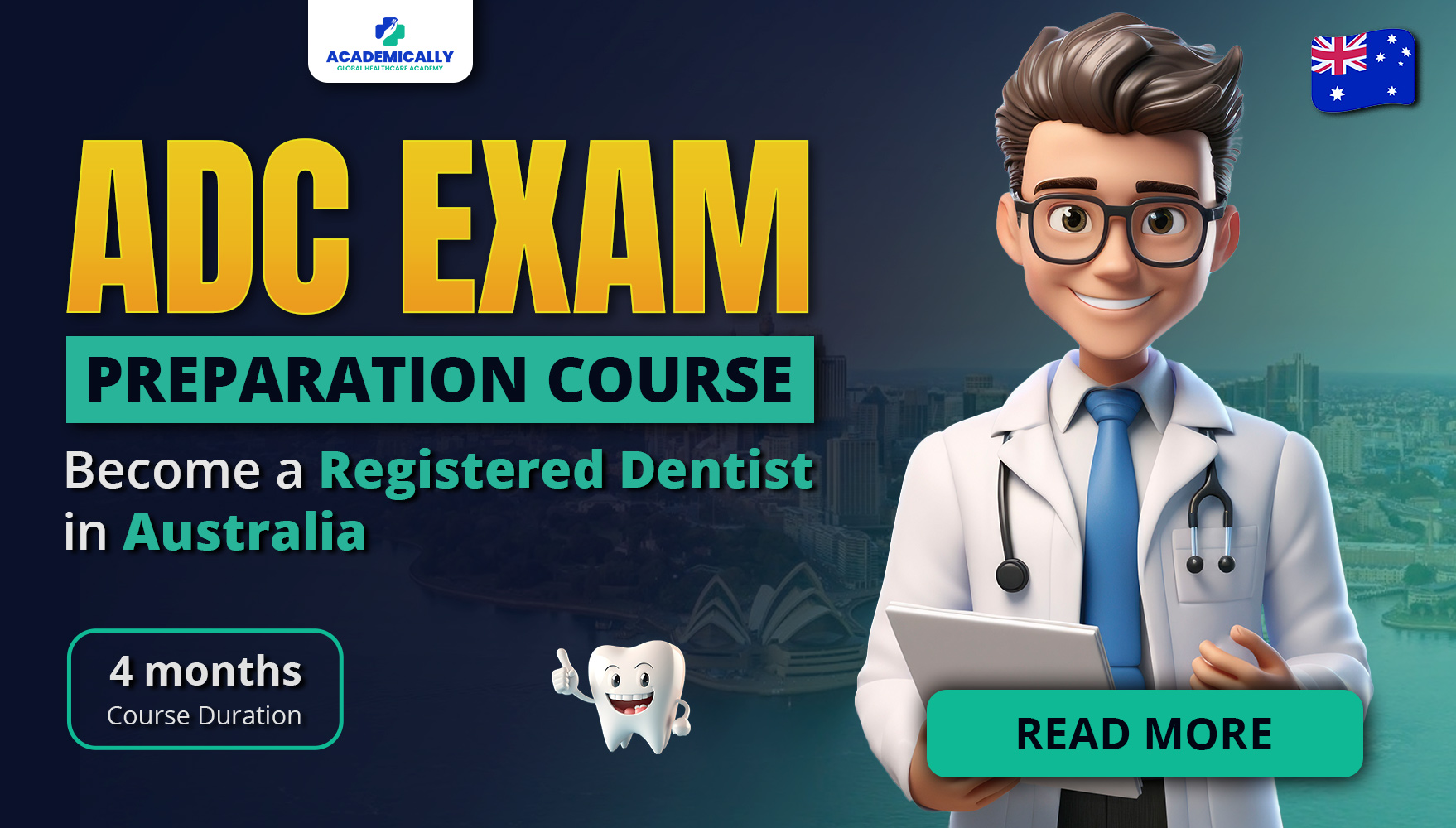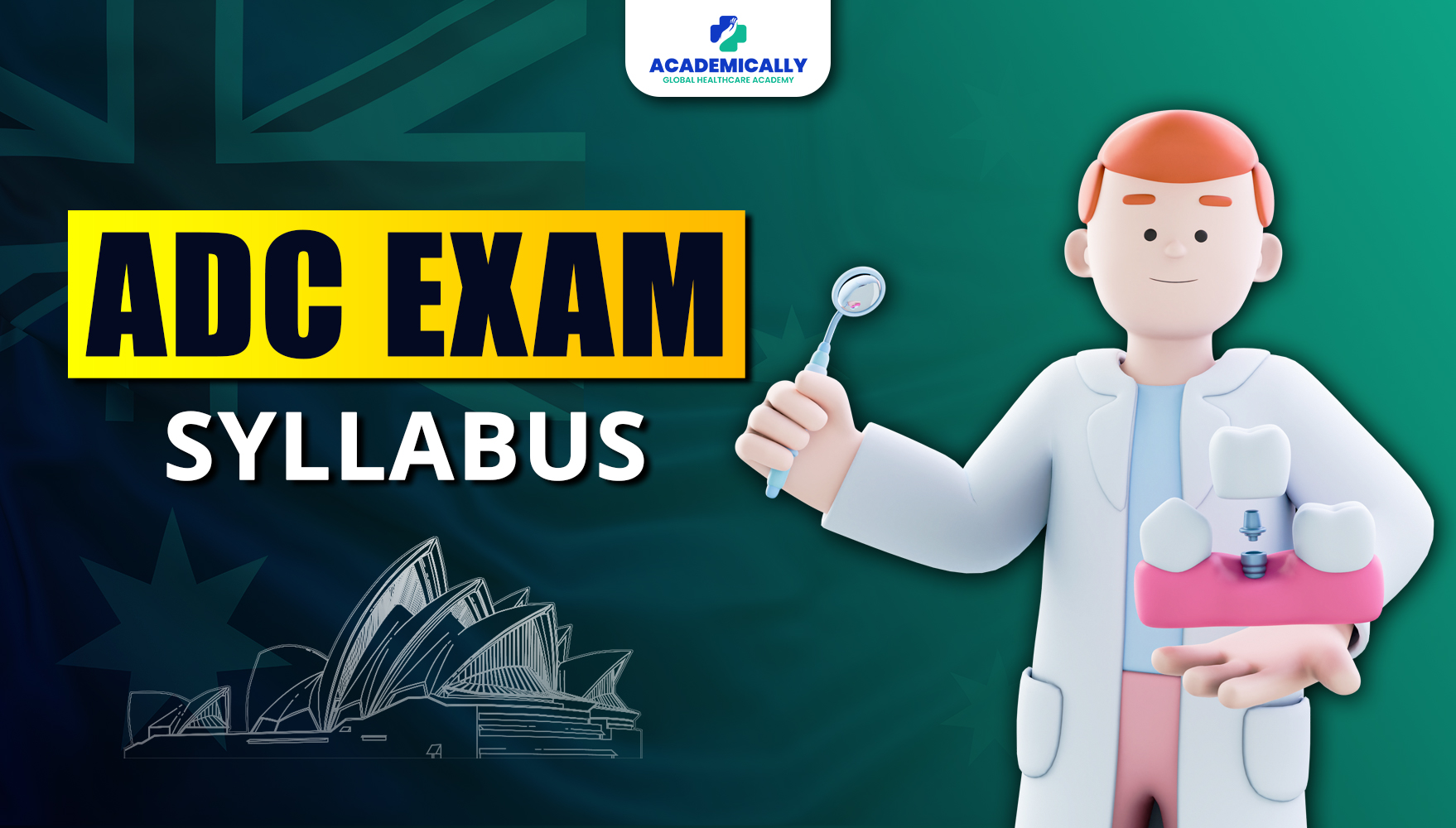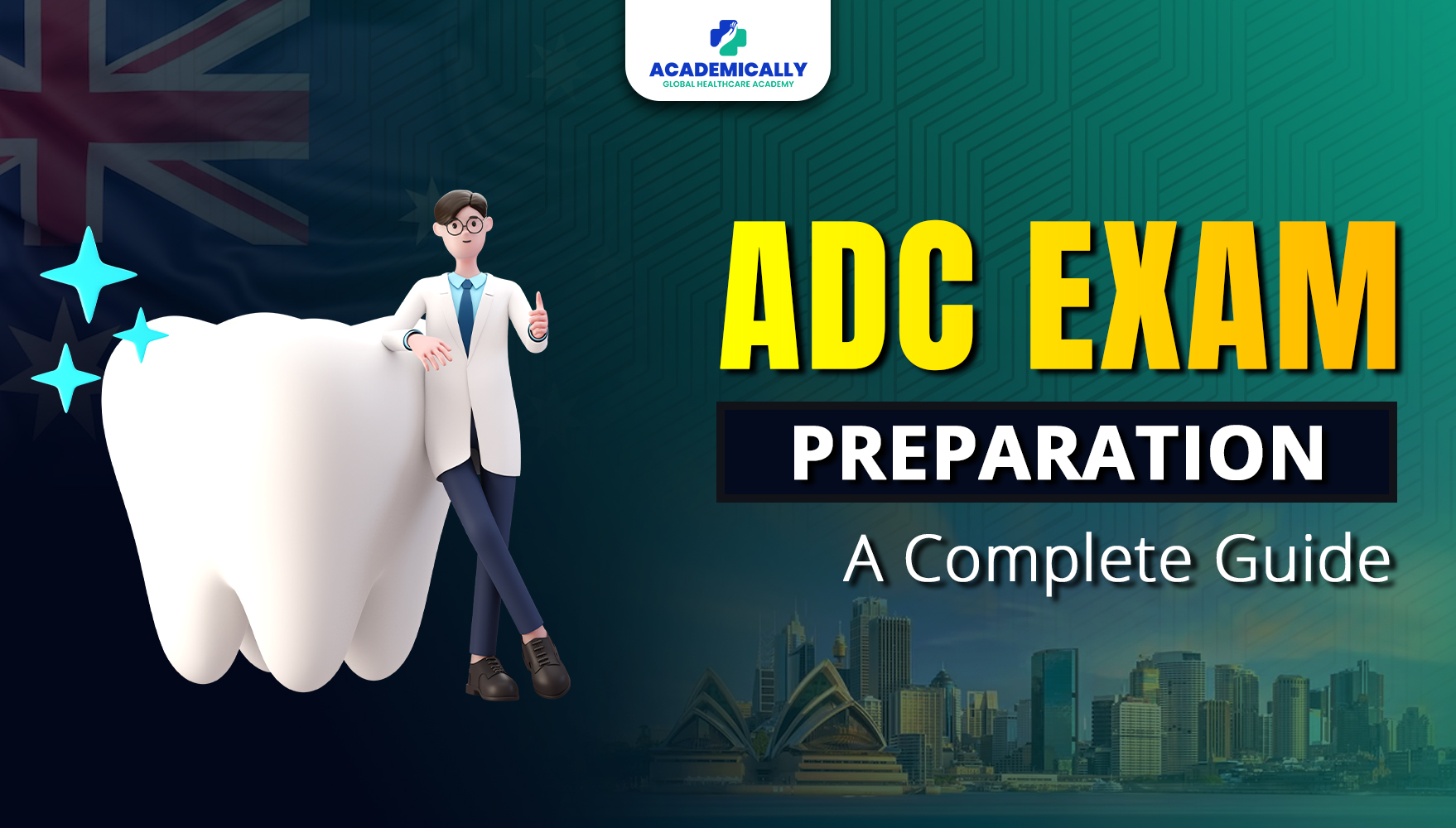Introduction
The ADC Exam syllabus provides a roadmap that outlines the essential dental topics and areas of expertise candidates are expected to master.
It encompasses various subjects, from dental anatomy and oral pathology to radiology, prosthodontics, and more. The syllabus is designed to equip candidates with the comprehensive knowledge and practical skills required to excel in their dental careers and provide exceptional patient care.
Through a detailed exploration of the ADC Exam syllabus, candidates gain insight into the specific focus areas and the depth of knowledge required to successfully navigate the exam.
From understanding the intricacies of dental anatomy to developing proficiency in diagnosing oral diseases, the syllabus serves as a comprehensive guide, ensuring that candidates are well-prepared to meet the demands of the ADC Exam.
About the ADC written examination
The written examination takes two consecutive days and is held twice a year, usually in March and September.
It consists of multiple-choice questions presented in a scenario-based format. You will be given a scenario related to dental practice in Australia, and you will need to answer several multiple-choice questions based on the information provided in the scenario.
The purpose of the assessment format is to evaluate your knowledge of the science and practice of dentistry, as well as your clinical judgment and reasoning skills relevant to dental practice in Australia. It provides an opportunity for you to demonstrate your understanding of how to apply dentistry in an Australian context.

Written Exam Syllabus
The ADC assessment process aims to maintain a consistent standard that aligns with Australian-qualified dental practitioners.
To achieve this, the content of the written examination is developed based on the expected competencies of a dental practitioner who has recently graduated from an ADC-accredited dental program in Australia.
The examination assesses candidate's knowledge and skills against these competencies to ensure they meet the expected standards of dental practice in the country.
ADC written examination blueprint
| Disciplines | Target % of questions |
|---|---|
| Dental emergencies | 7% |
| Endodontics | 8% |
| General medicine (inc. medical emergencies and special needs dentistry) | 9% |
| Infection prevention and control | 5% |
| Oral medicine and pathology | 9% |
| Oral surgery | 8% |
| Paediatric dentistry and orthodontics | 8% |
| Pain and behaviour management | 7% |
| Periodontics | 8% |
| Preventive dentistry | 8% |
| Radiography | 5% |
| Removable prosthodontics | 6% |
| Restorative dentistry (inc. fixed prosthodontics) | 12% |
| Subdisciplines (assessed across multiple disciplines) | Target % of questions |
|---|---|
| Implants | 4% |
| Pharmacology | 10% |
About the Practical exam
Once you have completed and passed the written examination, you become eligible to apply for a place in the practical assessment, provided that you adhere to any relevant application deadlines.
Typically, a pass in the written examination remains valid for three years starting from the date you were notified of your examination result. It's important to note that this timeframe allows you a sufficient window to proceed with the practical examination while your written examination results are still valid.
Practical examination Syllabus
The practical examination primarily assesses the competencies outlined in Patient Care, specifically in clinical information gathering, diagnosis, management planning and clinical treatment and evaluation.
To ensure consistency and clarity, the examination is carefully aligned with these competencies, creating a blueprint that forms the foundation of the practical examination. This blueprint serves as a structured framework that guides the content and structure of the practical examination, ensuring that all relevant aspects of patient care are appropriately evaluated.
Practical examinations are held over two consecutive days and consist of:
- a technical skills day
- a clinical skills day
A technical skills day covers the provision of evidence-based patient-centred care and may include tooth preparation and /or restoration related to:
- conservation
- endodontics
- fixed prosthodontics
A clinical skills day covers the demonstration and assessment of the professional
Competencies like:
- clinical information gathering
- diagnosis and management planning
- clinical treatment and evaluation
ADC Practical examination blueprint
| Domains | Examination Day | Method of Assessment |
|---|---|---|
| Clinical information gathering | Clinical skills day | OSCE (objective structured clinical examination) |
| Diagnosis and management planning | Clinical skills day | OSCE (objective structured clinical examination) |
| Clinical treatment and evaluation | Technical skills day | OSCE (objective structured clinical examination) and Technical Task |
Conclusion
Through the ADC Exam syllabus, candidates gain clarity on the content and structure of the exam, allowing them to prepare strategically and confidently.
By recognising the specific areas of focus and the depth of knowledge required, candidates can tailor their study plan, ensuring thorough preparation and a better chance of success in the exam.
Embarking through the ADC Exam syllabus is a significant step towards achieving dental registration and licensure in Australia. With the proper preparation and guidance, the journey can be smooth sailing.
Fill up this form for a free one on one counselling session.



